I think it’s time we reconsidered the definition of “adaptation.” Not that adapted movies are anything new, of course, but the film industry has become so overrun with adaptations in recent years that a second type has quietly begun to emerge.
The first type is what I hereby label an “ends” adaptation. These are movies derived from works that were intended to be ends in themselves. “Watchmen,” for example, was specifically engineered to be a graphic novel. “Where the Wild Things Are” was only a children’s book of roughly a dozen pages. “The Lord of the Rings” was roughly a thousand pages long. None of these stories were ever created with big screen intentions, yet Hollywood did inevitably come knocking for all of them.
But now we have a second type, which I’ve decided to call a “means” adaptation. These are the films based on earlier works which were themselves only made as a pitch for a film. Hellraiser is the earliest example I can think of, though Cowboys & Aliens is a far more prominent and recent case in point. Right now, Tron: Legacy director Joseph Kosinski is hard at work on Oblivion, an adaptation of his own comic book.
The fact is that “means” adaptations are becoming more and more common, as would-be screenwriters turn their ideas into books, internet comics, webseries, or graphic novels in an attempt at gaining traction and getting their movies made. So now the question must be asked: If a story was always intended to be a movie, but has to go through another medium before becoming a movie, does the end result still qualify as an adaptation? Personally, I would argue that it doesn’t.
On a totally unrelated note, here’s The Perks of Being a Wallflower. The movie was based on a book by Stephen Chbosky… who also wrote, directed, and exec-produced the film adaptation. Yeah.
Anyway, this film is centered on Charlie (Logan Lerman), who’s just starting his freshman year of high school. That’s hard enough for anyone, but Charlie is a particularly introverted fellow with a very traumatic history. So naturally, his first few days of high school are absolute torture. But then Patrick comes into the picture.
Patrick (Ezra Miller) is a senior with a reputation as the class clown. The guy doesn’t remotely care about the standard social etiquette of high school, so he of course befriends Charlie. Soon after, Charlie meets Patrick’s stepsister, another free-spirited senior named Sam (Emma Watson). Together, they introduce Charlie into their demented and eccentric circle of friends.
Among the supporting cast is Bob the stoner (Adam Hagenbuch); Mary Elizabeth, the punk vegetarian Buddhist (Mae Whitman); Alice, the kleptomaniac who comes from a rich family (Erin Wilhelmi); and Brad, who’s also on the football team (Johnny Simmons). Elsewhere, we have Charlie’s family, with Dylan McDermott and Kate Walsh playing his parents. There’s also Candace and Chris — Charlie’s older siblings — played by Nina Dobrev and Zane Holtz respectively. Melanie Lynskey is also on hand, appearing for a few flashbacks as Charlie’s dear departed Aunt Helen. Last but not least is Mr. Anderson, Charlie’s English teacher, played by Paul Rudd.
…Okay, Joan Cusack pokes her head in as well, but not until the last ten minutes or so.
I mention the characters up front because they’re easily the best thing about this movie. They’re all written superbly well and the cast is uniformly extraordinary. Their problems are perfectly easy to relate to, and the relationships between them all ring beautifully true.
Charlie, for example, is adorably clueless. The guy has no social skills and he doesn’t have any friends who are willing or able to help him, though he really does want to improve in those regards. It’s a perfectly sympathetic position to be in, though a bit cliche. So the film throws in a very novel wrinkle: His social awkwardness stems at least in part from a severe psychological disorder, and he doesn’t have any friends because his best friend killed himself a few months ago. Going into such territory was a bold move, and the film miraculously plays it all in a very tasteful way. As a result, we’re led to invest a far greater amount of sympathy in Charlie, since luck dealt him an incredibly bad hand and he’s struggling every day to improve it.
Then we have Patrick. For those just tuning in, Ezra Miller previously came to fame in We Need to Talk About Kevin. He played the title role in that film, a teenaged psychopath who went Columbine on his high school. Here, Miller keeps the insanity and the utter disregard for what other people think, but he effectively parlays that into a character who lashes out with humor instead of violence. The end result is a character with incredible manic energy who’s not only entertaining to watch, but also easy to love. Patrick is a guy who gives as good as he gets, to his friends and his enemies alike. The guy is so witty in his retorts that it’s hard to see how much it really hurts when people pick on him. What’s more, the guy invests so much in his friendships that it’s all the sadder when his heart gets broken.
Then there’s Sam. She’s another character with a great deal of emotional baggage, though at least she has Patrick to help her sort through them. The contrast between Sam and Charlie is a very interesting one: Charlie is awkward in love because he has absolutely no experience with girls, and Sam is awkward in love because of all the emotional scarring left by her past lovers. Put the two of them together and their emotional baggage proves to be very compatible. What’s more, Sam is a very compassionate young woman with undeniable sex appeal and a quirky sense of humor. As such, it’s no wonder that she and Charlie become such fast friends. Indeed, the two have such amazing chemistry that it’s obvious from the start that they were meant for each other.
Lerman, Miller, and Watson all do incredible work in this film, and the secondary cast is excellent as well. Still, a couple of supporting actors deserve special mention. One of them is Mae Whitman. She elegantly delivers a self-righteous counter-culture activist who turns out to be so emotionally needy it’s pathetic. The other one is Paul Rudd, who does a remarkable job of playing a mentor figure for Charlie. In his hands, Mr. Anderson becomes one of those teachers who helps make adolescence bearable, going however many extra miles are necessary to nurture and inspire his students.
I cannot stress enough that these characters are all remarkable. They’re funny, they’re tragic, they’re sympathetic, relateable, and authentic. All the more regrettable that this movie shows a crippling inability to commit.
For example, consider the movie’s setting in terms of time period. The costuming, dialogue, and politics would all imply that it was set in the modern day. Yet the characters trade mix tapes and play records on vinyl. The film uses ample pop culture references with regard to movies and music, and they’re all phenomenal, but none of it belongs to any particular time period after the 1980s, so far as I could tell. I know it’s a minor point, but I couldn’t get a bead on when this film was set, and it kept bugging me through the whole runtime.
But that’s just small potatoes, really. The far bigger problem is that this film literally has more storylines than it knows what to do with. There are countless subplots in this film, all of which are potentially very interesting, but none of them are developed enough or prominent enough to be considered the main plot. There’s no through-line that takes us all the way from beginning to middle to end.
There’s Charlie’s psychological problems, but they don’t pose any serious threat until the climax. There’s Charlie’s unfinished business regarding his Aunt Helena, but we never learn all the details about why he considers himself responsible for her death or what unnamed scandal she inflicted on him. There’s Charlie’s freshman year, but the film keeps going long after the last day of school. There’s Charlie’s romance arc with Sam and Sam’s own misadventures in romance, but a pivotal scene from both takes place offscreen.
It doesn’t stop with our main character, either. Candace is saddled with a crappy boyfriend, but that storyline takes place almost entirely out of scene. There’s Patrick and his own troubled love life, but that matter is settled long before the film’s end.
Still, I think the biggest waste of potential comes with all the drug and alcohol use. Charlie’s new friends are notoriously hard partiers, and they quickly introduce him to the joys of liquor, marijuana, and LSD. Sure, he has a great time with them, and his friends are responsible enough to ensure that Charlie’s experiences are relatively safe and enjoyable. All the same, it’s entirely possible that Charlie’s friends may be a harmful influence in spite of all that. Unfortunately, this matter is only barely touched upon for one brief scene and never mentioned again. Wow.
Again, it’s not like any of these storylines are awful. In fact, taken individually, they make for some wonderful drama. The problem is that they never gel together into a single cohesive whole, and the overall plot collapses into a smoking mess because of it. Though to be fair, that’s not necessarily a bad thing, as Garden State and Fast Times at Ridgemont High will attest.
The Perks of Being a Wallflower is certainly not a bad film. Indeed, the movie earns a great deal of praise for its wonderfully crafted characters, its superlative cast, and its incredible amount of heart. Still, I can’t bring myself to overlook the excessive number of subplots that the film tries to cram in, ultimately doing none of them justice. Because Stephen Chbosky couldn’t just pick a storyline and stick to it, the plot aimlessly rambles from one scene to the next until the credits finally roll.
I can’t bring myself to decide if this lack of structure is a bug or a feature. If you think it’s the latter, then by all means, check this film out at your first opportunity. If you think it’s the former, then I can still heartily recommend a rental.
—
For more Movie Curiosities, check out my blog. I’m also on Facebook and Twitter.



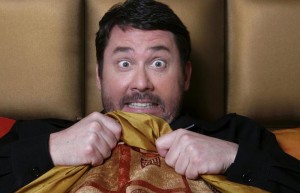


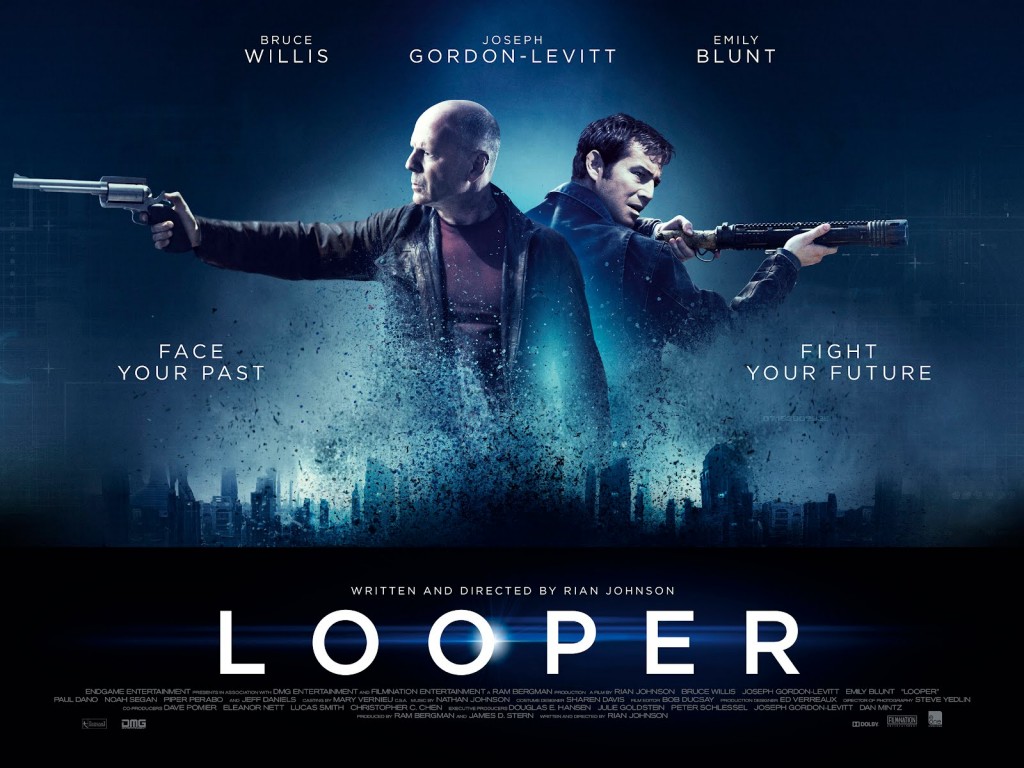

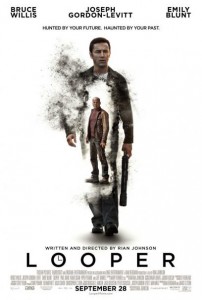
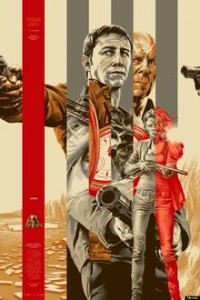
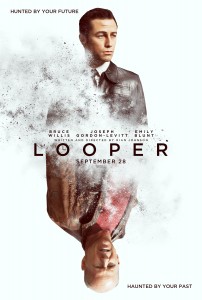

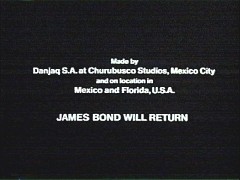
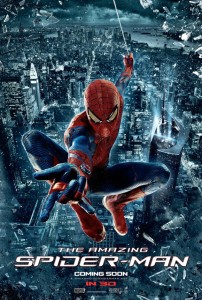 I liked The Amazing Spider-Man. Granted, it doesn’t hold a candle to the first two films in Raimi’s trilogy. And a film where the general consensus appeared to be “Hey, that wasn’t as bad as I thought,” doesn’t inspire much anticipation for continued adventures. I’m almost loath to revisit the film because,
I liked The Amazing Spider-Man. Granted, it doesn’t hold a candle to the first two films in Raimi’s trilogy. And a film where the general consensus appeared to be “Hey, that wasn’t as bad as I thought,” doesn’t inspire much anticipation for continued adventures. I’m almost loath to revisit the film because, 









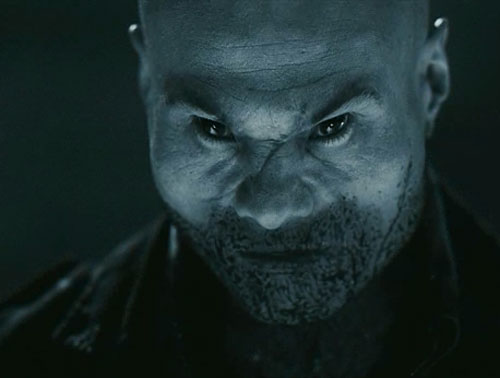

 For 17 years Ira Glass has been bringing us stories illustrating the American condition with popular publicly syndicated radio show This American Life. It’s no surprise the acclaimed personality was drawn to a project like Sleepwalk with Me – a film written, directed by and starring comedian Mike Birbiglia in which Glass served as producer and writer. If the story seemed interesting to Glass, it’s wholeheartedly personal to Mr. Birbiglia. Loosely autobiographical and recounting his own rise to prominence as well as his battle with sleepwalking, Sleepwalk shows Birbiglia struggling to make his way in the world as his relationship with his fiancée slowly degrades (
For 17 years Ira Glass has been bringing us stories illustrating the American condition with popular publicly syndicated radio show This American Life. It’s no surprise the acclaimed personality was drawn to a project like Sleepwalk with Me – a film written, directed by and starring comedian Mike Birbiglia in which Glass served as producer and writer. If the story seemed interesting to Glass, it’s wholeheartedly personal to Mr. Birbiglia. Loosely autobiographical and recounting his own rise to prominence as well as his battle with sleepwalking, Sleepwalk shows Birbiglia struggling to make his way in the world as his relationship with his fiancée slowly degrades (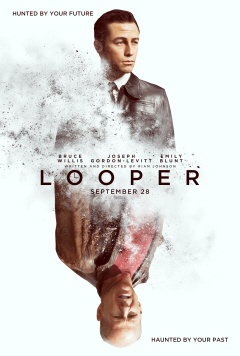 In gearing up for my review of Rian Johnson’s Looper, I kept searching to find a definitive train of thought that’d illustrate what makes the film so special. Whenever I’d arrive at a conclusion I’d be visited by another observation that’d completely morph or enhance my perception of the film. Complex, oscillating and categorically immersive, Johnson has unleashed a filmic vision that’s as rewarding as it is emotionally resonate. Looper is an all-timer – a film that, years from now, emerging young filmmakers will credit as one of the works that inspired them to hone their craft.
In gearing up for my review of Rian Johnson’s Looper, I kept searching to find a definitive train of thought that’d illustrate what makes the film so special. Whenever I’d arrive at a conclusion I’d be visited by another observation that’d completely morph or enhance my perception of the film. Complex, oscillating and categorically immersive, Johnson has unleashed a filmic vision that’s as rewarding as it is emotionally resonate. Looper is an all-timer – a film that, years from now, emerging young filmmakers will credit as one of the works that inspired them to hone their craft.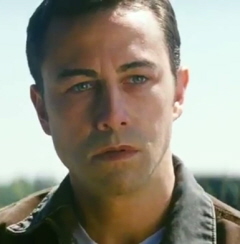 Time travel hasn’t been invented in the decrepit, decaying gangland of 2044 America. That comes 30 years later. We first meet Young Joe as he’s still a fresh successful Looper in 2044. Loopers are hitmen called upon to kill people from the future that the mob, now in firm control of the US, want to dispose of. Victims are sent back where they’re immediately finished off by the blunderbuss gutshot of a waiting Looper –their bodies disposed of in the most creative, efficient way possible.
Time travel hasn’t been invented in the decrepit, decaying gangland of 2044 America. That comes 30 years later. We first meet Young Joe as he’s still a fresh successful Looper in 2044. Loopers are hitmen called upon to kill people from the future that the mob, now in firm control of the US, want to dispose of. Victims are sent back where they’re immediately finished off by the blunderbuss gutshot of a waiting Looper –their bodies disposed of in the most creative, efficient way possible.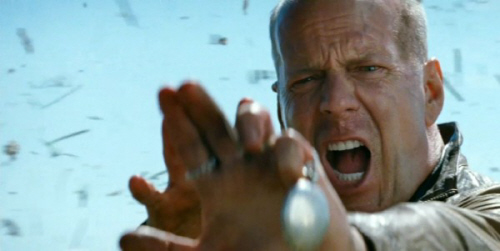
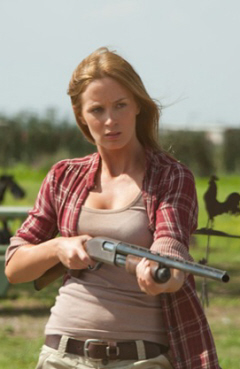 Emily Blunt delivers what I believe to be the best performance in her career as Sara, a cane farmer that Young Joe is forced to protect from his older self. To reveal why would be to giving away too much. But the most astounding performance in the film, one that’s as creepy as it is complicated, belongs to Pierce Gagnon as her son Cid. This is the most memorable child performance I can recall since Macaulay Culkin in Home Alone. It’s a weird comparison, but it’s not often that a director is able to finagle such an effecting performance from such a young actor – one that not only contributes to the film but enhances it. That Gagnon is five is astounding. More than anyone else, he is who people who’ve seen Looper will be talking about next week.
Emily Blunt delivers what I believe to be the best performance in her career as Sara, a cane farmer that Young Joe is forced to protect from his older self. To reveal why would be to giving away too much. But the most astounding performance in the film, one that’s as creepy as it is complicated, belongs to Pierce Gagnon as her son Cid. This is the most memorable child performance I can recall since Macaulay Culkin in Home Alone. It’s a weird comparison, but it’s not often that a director is able to finagle such an effecting performance from such a young actor – one that not only contributes to the film but enhances it. That Gagnon is five is astounding. More than anyone else, he is who people who’ve seen Looper will be talking about next week.